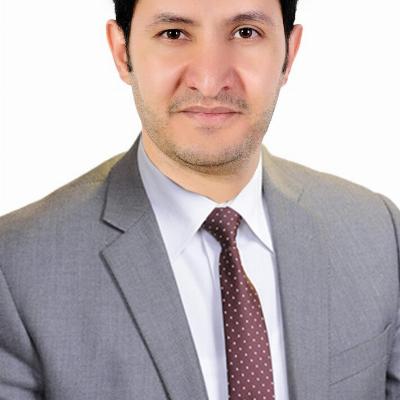This training offers a comprehensive introduction to renewable energy, including biomass, hydropower, wind, solar, geothermal, and marine energy. It highlights the influence of geographical and climatic factors on the accessibility and efficiency of these resources, and delves into the economic reasons driving the global shift from fossil fuels. This includes rising fossil fuel costs, decreasing expenses of renewable technologies due to advancements, and policies aimed at internalizing environmental costs.
Key technologies such as wind turbines and solar photovoltaic systems are explored, focusing on their design improvements, operational efficiencies, and the technological progress from raw materials to operational plants. The course also covers hydropower and geothermal energy, discussing parameters affecting power generation, and financial and technical challenges.
Participants will learn about the uncertainties in energy output and resource assessment, including the use of data for precise resource assessment and the economic implications of resource variability.
Economic analysis forms a core part of the program, addressing cost factors like capital and operational expenditures, and the levelized cost of electricity. It also includes an overview of renewable energy finance, risk management, and the structuring of power purchase agreements, providing insights into financial strategies and risk mitigation in renewable energy projects.
The training concludes with case studies and analytical tools that offer practical insights, ensuring participants are well-prepared for roles in the dynamic field of renewable energy economics
• Energy sector professionals looking to deepen their knowledge of renewable energy economics.
• Financial analysts and investors focusing on the renewable energy market.
• Policy makers and government officials involved in energy regulation and sustainable development.
• Project managers and engineers working in the renewable energy industry.
• Environmental consultants and sustainability officers aiming to integrate renewable energy solutions into their practices.
- Understand the diverse types of renewable energy sources and the environmental and geographical factors influencing their efficiency and deployment
- Analyze the economic and market trends driving the transition from fossil fuels to renewable energy, including the financial implications of policy and technological advancements
- Evaluate the technical aspects and economic viability of specific renewable technologies like wind turbines and solar photovoltaic systems
- Assess the uncertainties and variabilities in renewable energy resources using data-driven approaches
- Conduct comprehensive economic and financial analyses of renewable energy projects, including cost assessments and risk management
- Develop strategies for structuring and financing renewable energy projects, understanding stakeholder roles and project bankability






- Overview of Renewable Energy: Biomass, Hydropower, Wind Power, Solar Energy, Geothermal Energy, Marine Energy
- Availability and Accessibility: How geographical and climatic factors influence the availability and efficiency of different renewable resources
- Rising Costs of Fossil Fuels: Market trends and implications.
- Decreasing Costs of Renewables: Technological advances and scaling up
- Accounting for Externalities of Fossil Fuels: Policies to internalize environmental and health costs
- Enabling Policies for Renewable Energy: Incentives, subsidies, and regulatory support
- Global Case Studies: Successful transitions, challenges faced, and lessons learned from around the world
- Importance of Rotor Blades in Power Output
- Impact of Drive Train Reliability on Energy Costs
- Effects of Increased Rotor Diameters and Tower Heights
- Assessment of Offshore Technology Challenges and Justifications
- Influence of Wind Duration, Speed, and Measurement Variables on Turbine Efficiency
- From Silicon to Solar PV Power Plants: Growth Constraints
- Future Prospects Across Various Photovoltaic Technologies
- Critical Balance of System Components: Inverters, Transformers, and More
- Analysis of Solar Irradiation Types and Their Implications
- Understanding Measurements: Watt-Peak, Cell Efficiency, and Performance Ratios
- Benefits and Challenges of Tracking Systems in Energy Output
- Essential Hydrological Parameters: Catchment Area and Flow Rates
- Hydraulic Structures and Project Types: Dams versus Run-of-River
- Innovations and Performance of Turbine Technologies
- Water Quality and Environmental Factors Affecting Hydro Power
- Integration of Hydro Power with Environmental and Recreational Activities
- Overview of Geothermal Plant Types and Their Applications
- Financial and Technical Challenges in Geothermal Exploration
- Scalability Potential of Geothermal Power Facilities
- Transition of Enhanced Geothermal Systems to Operational Status
- Utilization of Geothermal Heat and Revenue Generation Opportunities
- Key Geothermal Metrics: Drilling Depth and Induced Water Cycle Effects
- Utilization of Satellite and Terrestrial Data for Renewable Resource Assessment
- Significance of Measurement Campaigns for Reliable Energy Production Estimates
- Understanding Power Curve Uncertainties: Expectations vs. Reality
- Decoding Resource Assessment Reports: Standard Deviation, Variance, and Probability Metrics (P50/P90)
- Historical Predictability and Variability in Renewable Resource Assessments
- Impact of Data Duration and Additional Measurements on Bankability
- How Minimizing Uncertainties in Annual Energy Output Enhances Financial Outcomes
- Exploring Sources of Uncertainty and Variability: Expert vs. Layman Perspectives
- Analysis of Capacity Factors and Availability Variations
- Capital Expenditure (CAPEX) and Operational Expenditure (OPEX): Trends and Differences
- Understanding the Levelized Cost of Electricity and Its Dependency on Location
- Importance of Integrating Financial Concepts in Project Development
- Comparative Analysis of Corporate Finance and Project Finance
- Evolution of Project Finance in Infrastructure and Renewable Sectors
- Overview of Project Financing Structures and Associated Legal Complexities
- Criteria for a Bankable Project: Understanding and Meeting Lender’s Requirements
- Stakeholders in Project Financing: Roles and Relationships
- Constructing a Strong Project Foundation Using Equity and Debt Sources
- Risk Identification Stages: Development, Construction, Start-up, Operations & Maintenance
- Key Milestones: Concession Signing, Financial Close, Commercial Operation, Loan Maturity
- Importance of EPC Turn-key Contracts for Timely, Budgeted, and Specified Delivery
- Risk Control: Delay & Performance Liquidated Damages, Liability Limits
- Force Majeure and Dispute Resolution
- Essential Factors for O&M Providers and Contract Bankability
- Mitigating Financial Risks with Warranties, Insurances, Guarantees
- Role of Multilateral Banks and Export Credit Agencies in Developing Markets
- Project Description and Characteristics Overview
- Land Lease Agreements
- Resource Assessment
- Required Permits and Concessions
- Grid Connection Requirements
- Key Contracts: EPC, PPA, Sponsors, Lenders, O&M, Insurance, Guarantees
- Bankability, Due Diligence, and External Advisors Financial Analysis and Debt Capacity Assessment
- Financial Analysis and Debt Capacity Assessment
- Capital Injection Timing and Basis
- Lender Security: Grace Periods, Debt Service, O&M Reserves
- Financial Controls: Cash Sweeps, Cash Traps, Dividend Blockers
- Cash Flow Waterfall Placement
- Covenants, Securities, Sources and Uses Overview
- Financial Terms Review: Rates, Fees, Margins, Commissions
- Preconditions for Financial Close and Agreements
- Cash Flow Analysis for Debt Service (CFADS)
- Debt Capacity Influenced by Cash Flow Predictions, DSCR, and Loan Tenure
- Equity Return Enhancement via Equity-to-Debt Gearing
- Project and Equity NPV and IRR Analysis
- Loan Tenure Constraints
- DSCR Comparisons Throughout Loan Life
- Loan and Project Life Cover Ratio Assessment
- Loan Repayment Structures: Linear, Annuity, Debt Sculpting
- Sensitivity & Scenario Analysis on CAPEX, OPEX, Revenue Variations
- Importance of Off-take Agreements for revenue stability across power, heat, and certificates
- Characteristics of a bankable PPA
- Timing and payment conditions in PPAs
- Comparison of tariff structures for dispatchable vs. non-dispatchable technologies
- Details on capacity and energy charges, metering, and delivery points
- Cure periods and step-in rights to set a deemed commercial operation date
- Curtailment clauses: deemed capacity and generation
- Risks of non-payment by off-takers, FX volatility, and currency convertibility
- Case studies showcasing best practices, failures, and varied applications in renewable technologies
- Analysis of resource audits and annual energy production for different technologies and locations
- Examples of PPA, EPC, and O&M contract clauses across various jurisdictions and technologies
- Sample loan term sheets for renewable energy project financing
- Financial models to analyze the levelized cost of electricity (LCOE) and financial ratios












Training can take place in 4 formats:
- Self-paced
- Blended learning
- Instructor-led online (webinar)
- Instructor-led offline (classroom)
Description of training formats:
- Self-paced learning or e-Learning means you can learn in your own time and control the amount of material to consume. There is no need to complete the assignments and take the courses at the same time as other learners.
- Blended learning or "hybrid learning" means you can combine Self-paced learning or e-Learning with traditional instructor-led classroom or webinar activities. This approach requires physical presence of both teacher and student in physical or virtual (webinars) classrooms or workshops. Webinar is a seminar or presentation that takes place on the internet, allowing participants in different locations to see and hear the presenter, ask questions, and sometimes answer polls.
- Instructor-led training, or ILT, means that the learning can be delivered in a lecture or classroom format, as an interactive workshop, as a demonstration under the supervision and control of qualified trainer or instructor with the opportunity for learners to practice, or even virtually, using video-conferencing tools.
When forming groups of students, special attention is paid to important criteria - the same level of knowledge and interests among all students of the course, in order to maintain stable group dynamics during training.
Group dynamics is the development of a group in time, which is caused by the interaction of participants with each other and external influence on the group. In other words, these are the stages that the training group goes through in the process of communicating with the coach and among themselves.
The optimal group size for different types of training:
- Self-paced / E-learning: 1
- Instructor-led off-line (classroom): 6 – 12
- Instructor-led on-line (webinar): 6 – 12
- Blended learning: 6 – 12
- Workshop: 6 – 12
- On-the-job: 2 – 4
- Simulator: 1 – 2
Feedback in the form of assessments and recommendations is given to students during the course of training with the participation of an instructor and is saved in the course card and student profile.
In order to control the quality of the services provided, students can evaluate the quality and training programme. Forms of assessment of the quality of training differ for courses with the participation of an instructor and those that are held in a self-paced format.
For courses with an instructor, start and end dates are indicated. At the same time, it is important to pay attention to the deadlines for passing tests, exams and practical tasks. If the specified deadlines are missed, the student may not be allowed to complete the entire course programme.
A personal account is a space for storing your training preferences, test and exam results, grades on completed training, as well as your individual plan for professional and personal development.
Users of the personal account have access to articles and blogs in specialized areas, as well as the ability to rate the completed training and leave comments under the articles and blogs of our instructors and technical authors
Registered users of a personal account can have various roles, including the role of a student, instructor or content developer. However, for all roles, except for the student role, you will need to go through an additional verification procedure to confirm your qualifications.
Based on the results of training, students are issued a certificate of training. All training certificates fall into three main categories:
- Certificate of Attendance - students who successfully completed the course but did not pass the tests and exams can apply for a certificate of attendance.
- Certificate of Completion - students who have successfully completed a course could apply for a Certificate of Completion, this type of certificate is often required for compliance training.
- Verified Certificate - it is a verified certificate that is issued when students have passed exams under the supervision of a dedicated proctor.
You can always download a copy of your training certificate in PDF format in your personal account.
You will still have access to the course after completing it, provided that your account is active and not compromised and Tecedu is still licensed for the course. So if you want to review specific content in the course after completing it, or do it all over again, you can easily do so. In rare cases, instructors may remove their courses from the Tecedu marketplace, or we may need to remove a course from the platform for legal reasons.
During the training, you may encounter various forms of testing and knowledge testing. The most common assessment methods are:
- preliminary (base-line assessment) - to determine the current level of knowledge and adapt the personal curriculum
- intermediate - to check the progress of learning
- final - to complete training and final assessment of knowledge and skills, can be in the form of a project, testing or practical exam
Travel to the place of full-time training is not included in the cost of training. Accommodation during full-time studies can be included in the full board tuition fees.
While Tecedu is not an accredited institution, we offer skills-based courses taught by real experts in their field, and every approved, paid course features a certificate of completion or attendance to document your accomplishment.
You can preview samples of the training materials and review key information about the course on our website. You can also review feedback and recommendations from students who already completed this course.
We want you to be happy, so almost all purchased courses can be returned within 30 days. If you are not satisfied with the course, you can request a refund, provided the request complies with our return policy.
The 30-day money back policy allows students to receive quality teaching services with minimal risk, we must also protect our teachers from fraud and provide them with a reasonable payment schedule. Payments are sent to instructors after 30 days, so we will not process refund requests received after the refund period.
We reserve the right, in our sole discretion, to limit or deny refund requests in cases where we believe there is refund abuse, including but not limited to the following:
- A significant portion of the course has been consumed or downloaded by a student before the refund was requested.
- Multiple refunds have been requested by a student for the same course.
- Excessive refunds have been requested by a student.
- Users whose account is blocked or access to courses is disabled due to violation of our Terms and Conditions or the Rules of Trust and Security.
- We do not grant refunds for any subscription services.
- These refund restrictions will be enforced to the extent permitted by applicable law.
We accept most international credit and debit cards like Visa, MasterCard, American Express, JCB and Discover. Bank Transfers also may be an option.
Conducting classes is based on the fact that the teacher demonstrates text, drawings, graphics, presentations on an interactive board, while the content appears in the student's electronic notebook. A specially designed digital notepad and pen are used to create and edit text and images that can be redirected to any surface via a projector.
Classes are live streamed online, automatically recorded and published on the Learning Portal, allowing you to save them for reuse anytime, anywhere, on any mobile device. This makes it possible not to miss classes and keep up with classes and keep up with the passage of new material.
Real-life training uses the principles of game organization, which allows future professionals to rehearse and hone their skills in a virtual emergency. Learning as a game provides an opportunity to establish a connection between the learning activity and real life.
The technology provides the following learning opportunities:
- Focused on the needs of the user
- Instant feedback
- Independent decision making and choice of actions
- Better assimilation and memorization of the material
- Adaptive pace of learning tailored to the individual needs of the student
- Better transfer of skills learned in a learning situation to real conditions
Basic principles of training:
- A gradual increase in the level of difficulty in the game;
- Using a simplified version of a problem situation;
- Action in a variable gaming environment;
- The right choice is made through experimentation.
The main advantages of Game Based Learning technology:
- Low degree of physical risk and liability
- Motivation to learn while receiving positive emotions from the process;
- Practice - mirroring the real situation
- Timely feedback
- Choice of different playing roles
- Learning in collaboration
- Developing your own behavior strategy
Conducting practical classes online using remote access technologies for presentations, multimedia solutions and virtual reality:
- Laboratory workshops that simulate the operation of expensive bench equipment in real production
- Virtual experiment, which is visually indistinguishable from a remote real experiment performed
- Virtual instruments, which are an exact copy of real instruments
- Mathematical modeling to clarify the physical characteristics, chemical content of the investigated object or phenomenon.















